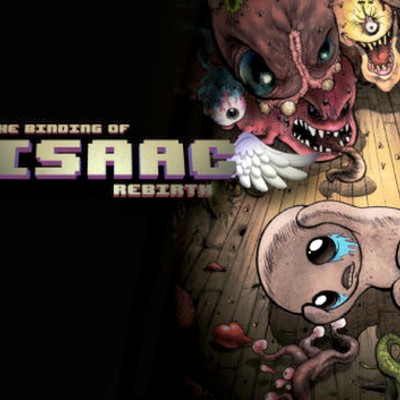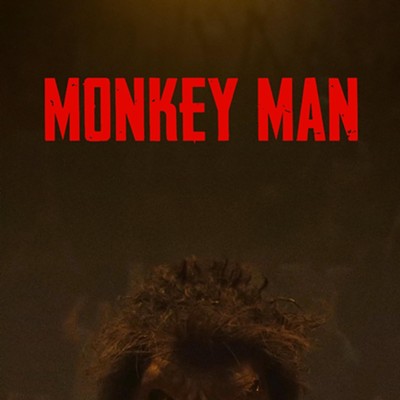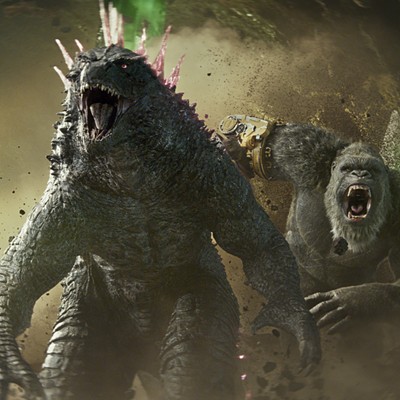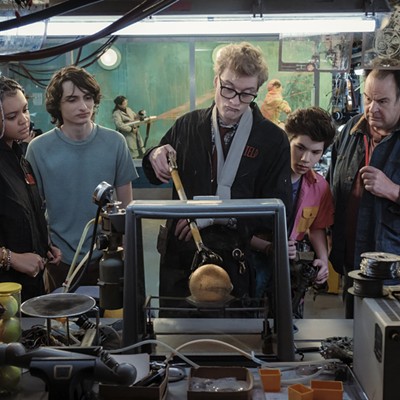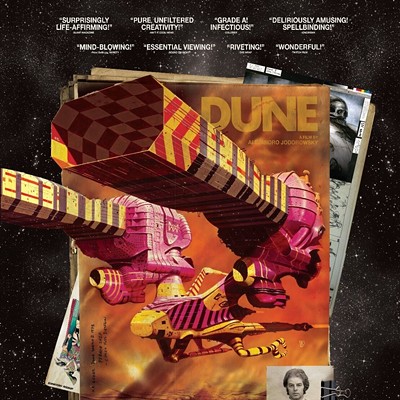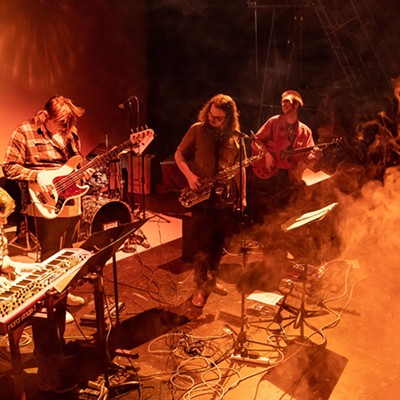By DAVID GERMAIN, of the Associated Press
For his latest blood fest, “Django Unchained,” Quentin Tarantino largely replays all of his other blood fests, specifically his last flick, “Inglourious Basterds.”
In that 2009 tale of wickedly savage retribution, Allied Jewish soldiers get to rewrite World War II history by going on a killing spree of Nazis. In Tarantino’s new tale of wickedly savage retribution, a black man (Jamie Foxx) gets to rewrite Deep South history by going on a killing spree of white slave owners and overseers just before the Civil War.
Granted, there’s something gleefully satisfying in watching evil people get what they have coming. But “Django Unchained” is Tarantino at his most puerile and least inventive, the premise offering little more than cold, nasty revenge and barrels of squishing, squirting blood.
The usual Tarantino genre mishmash — a dab of blaxploitation here, a dollop of Spaghetti Western there — is so familiar now that it’s tiresome, more so because the filmmaker continues to linger with chortling delight over every scene, letting conversations run on interminably and gunfights carry on to grotesque excess. Bodies bursting blood like exploding water balloons? Perversely fun the first five or six times, pretty dreary the 20th or 30th.
Tarantino always gets good actors who deliver, though, and it’s the performances by Foxx, Leonardo DiCaprio, Christoph Waltz and Samuel L. Jackson that make “Django Unchained” intermittently entertaining amid moments when the characters are either talking one another to death or just plain killing each other. Foxx’s Django starts literally in chains, part of a line of slaves on their way to the auction block. Genteel bounty hunter King Schultz (Waltz, an Academy Award winner for “Inglourious Basterds”) turns up searching for Django because the slave can identify three elusive overseers with a price on their heads. Next thing you know, Django’s apprenticing as a bounty hunter, forming a partnership with King that takes them deeper south in hopes of freeing Django’s wife, Broomhilda (Kerry Washington).
The trail leads them to a plantation owned by Calvin Candie (DiCaprio), a dandy who trains slaves for barbarous Mandingo fighting.
There are morbidly funny moments as Django and King infiltrate the plantation posing as buyers, the two sharing twisted exchanges with the flamboyantly creepy Candie and his chief house slave and Uncle Tom gone psycho, Stephen (Jackson, Tarantino’s “Pulp Fiction” co-star).
Tarantino mostly lets them prattle on to such lengths that whatever tension was building is defused. A scene in which a posse of Klan forerunners (led by Don Johnson) debates the difficulties of seeing out of their white hoods is hilarious for a few moments. But then they talk the gag into the ground, and keep on talking.
The humor co-exists uneasily and often clumsily alongside a story so charged with racial enmity. Tarantino’s solution to everything is to put guns and dynamite into people’s hands, and while that might be good escapism in a gangster story, it feels flimsy and childish here.
In the wake of the school shootings at Sandy Hook in Connecticut, Foxx talked about the need for Hollywood to accept the fact that movie violence can influence audiences. Tarantino countered that blame should fall to those who actually carry out a crime.
They’re both right, and it’s absurd to think that the cartoon bloodshed of “Django Unchained” might put viewers over the top and send them out on a shooting rampage.
Yet it is reasonable to ask why we find a Tarantino-style body count so entertaining that he can keep doing the same thing over and over, and we keep paying to see it.

